By Dilushi Wijesinghe
The European Union (EU) Election Observation Mission (EOM) based on observations during the 2024 Presidential election has made 16 recommendations.
This report, was compiled by the EU team of 70 international election observers deployed at the September Polls last year.
Speaking to the media , Chief Observer Nacho Sánchez Amor, a Member of the European Parliament from Spain said “The fact that the country has had the presidential elections and then the parliamentary elections signifies a real milestone because it means the country has come back to normality.”
The press conference was headed by Chief Observer Amor, Deputy Chief Observer Inta Lasse and Press Officer Marek Mracka.
Among the key recommendations were the enhancement of women's participation in politics, strengthening enforcement mechanisms against the misuse of state resources, improving transparency and accountability in campaign finance, repealing restrictive laws such as the Online Safety Act (OSA) and the Prevention of Terrorism Act (PTA) to safeguard freedom of expression and improving accessibility for voters with disabilities.
“The number of women elected to political office is extremely low, with less than 5 percent of women in the outgoing parliament and no woman among presidential aspirants. All leading presidential candidates were members of parliament, indicating that parliamentary office is an important precursor to contention for the presidential office. More women in parliament will foster female participation in the presidential election” the report stated, recommending special measures to promote the equal participation of women in public and political life to be adopted.
Currently, ECSL members are recommended for appointment by the Constitutional Council, with no formal involvement from civil society or public discussion about the candidates' qualifications. The observers recommend strengthening the independence of the ECSL by reviewing the selection process to ensure that there is a transparent, competitive process and a public debate, promoting appointment of independent individuals.
The observers also noted that voters who are ineligible for postal voting and cannot attend their polling station on election day are being denied their right to vote. This includes essential workers, homebound individuals, students, journalists, and those facing travel barriers. Furthermore, eligible prisoners have no provision to vote. The observers request to consider extending postal voting and introduce additional voting arrangements such as mobile ballot boxes for persons with disabilities.
Another observation of teh EOM was that despite ECSL’s voter education throughout the electoral cycle, key topics like voter registration, identification, and special voting arrangements were insufficiently covered. Additionally, there was insufficient education on how to use a preferential vote, with little public discussion about ranking second and third preferences and how these choices affect the election outcome.
The campaign silence period was identified as inconsistent as traditional media and on-the-ground activities stopped 48 hours before the election, media continued reporting on final rallies on September 19, and campaign activity persisted on social media, even on election day. The EOM suggests unified campaign silence rules be implemented across all media platforms and clear and enforceable sanctions should be introduced for violations.
Against the misuse of state resources, the EU suggests to enforce legal restrictions on the misuse of state resources and incumbency for campaign purposes.
The EOM noted gaps in the ECSL's oversight of campaign finance law. The ECSL is not mandated to review campaign expenditure or donation reports, nor does it collaborate with the police or other institutions to verify their accuracy. Amending the Election Expenditure Act to expand the ECSL's responsibilities and powers by requiring the Commission, in collaboration with other institutions, to verify the financial reports submitted by candidates is advised, stating “strengthen transparency in political finance by introducing a requirement to disclose campaign donations above a certain limit before election day.”
Additionally, transforming state media into genuine public service outlets by establishing legal safeguards for their editorial independence, financial sustainability and autonomy is suggested.
Observers propose amending the RTI Act to introduce proactive disclosure of information of public interest, including the results of the ECSL media monitoring and warning letters sent by them to media, in a timely manner and in an easily accessible format.
Strengthen the formal collaboration between the election administration and the main social platforms while legal limitations on free speech imposed through the ICCPR Act and the Online Safety Act (OSA) having a potential for arbitrary, repressive application against political dissent online and in real life were highlighted. Protecting freedom of political expression by repealing the Online Safety Act, the Prevention of Terrorism Act. as well as Section 3 of the ICCPR Act is suggested.
Introducing provisions on election observation into the electoral legal framework while incorporating the CRPD into national law is stated.
Inadequate secrecy of the ballot on election day was the only recurring shortcoming identified by EU EOM observers, who noted that in 63 observed cases the layout of the polling station did not sufficiently protect ballot secrecy. “Ensure transparency during the vote count by establishing minimum criteria for the choice of counting premises, including requirements for adequate space and accessibility” the observers say.
Mr Amor sas that himand the observers will return in two years for a follow-up mission.
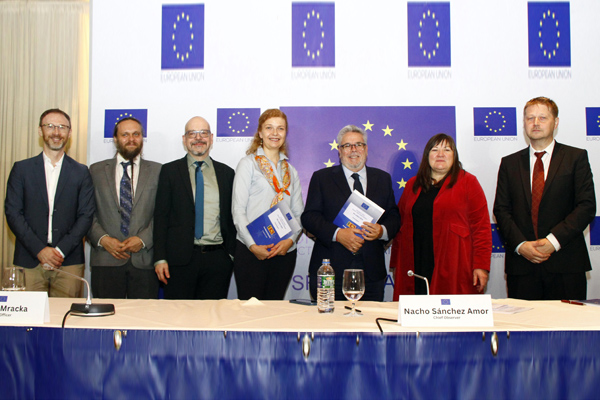
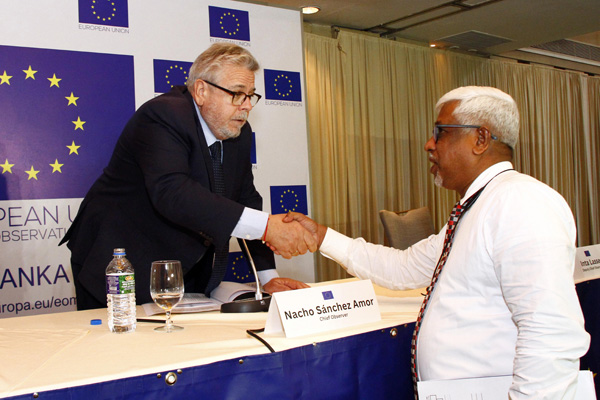
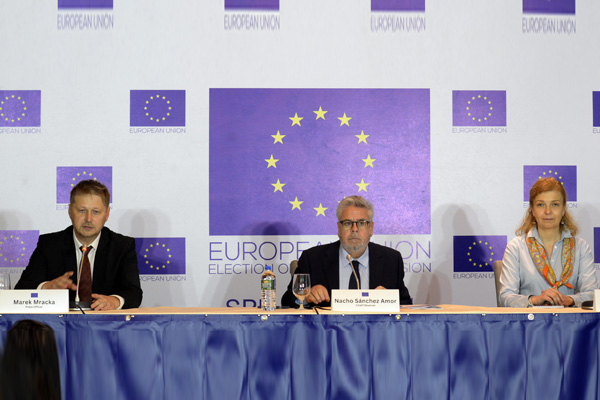
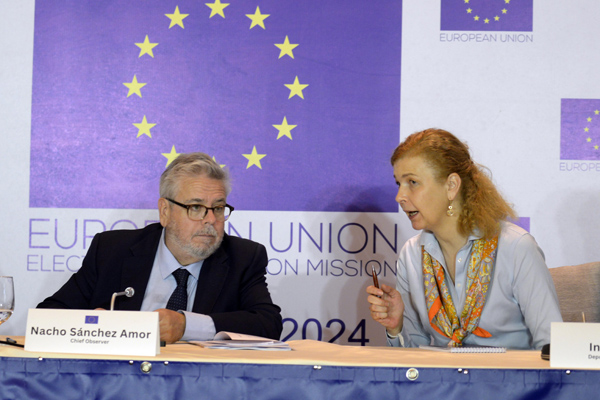
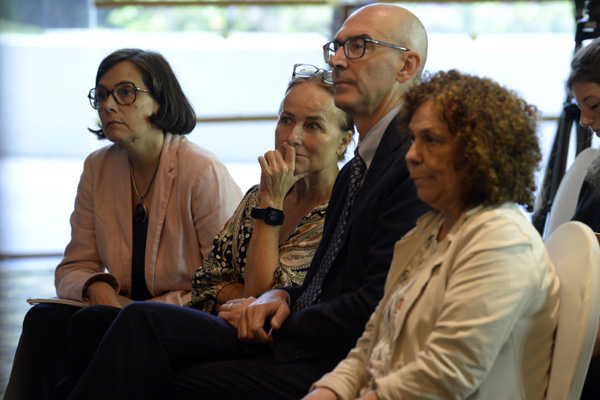
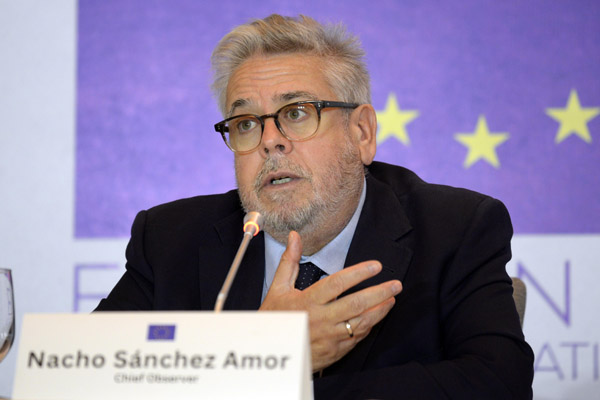
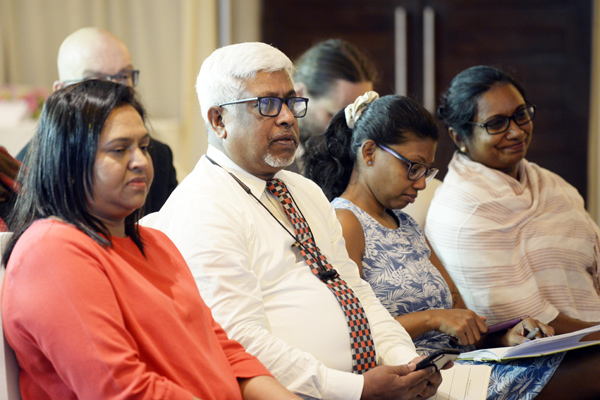
Leave Comments